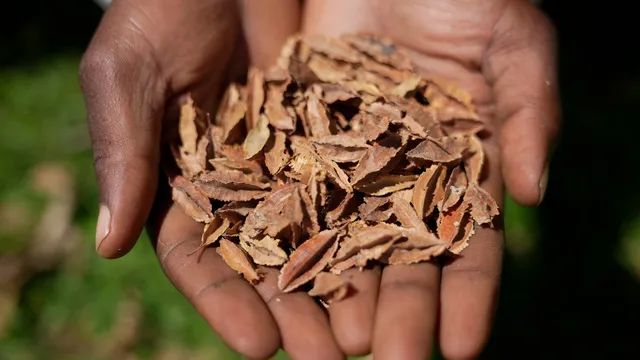
Farmers challenge seed sharing ban in Kenya
2025-01-29 10:51- Farmers in Kenya face economic challenges due to counterfeit seeds leading to substantial financial losses.
- The National Seed Bank maintains vital traditional seed varieties that can withstand climate change.
- A court case led by farmers seeks to challenge restrictive laws on seed sharing to promote food security.
Express your sentiment!
Insights
In Kenya, the agricultural sector is under strain, as farmers are increasingly suffering losses due to counterfeit seeds purchased from private sellers. The National Seed Bank, located in Kikuyu, plays a vital role in securing the future of agriculture by maintaining traditional seed varieties that are more resilient to climate change. Recent reports indicate that over a billion people across Africa struggle to afford healthy diets, exacerbating the issue of food insecurity. Farmers have reported substantial financial losses after planting counterfeit seeds, leading to governmental acknowledgment of the seed sector's critical role in food security and the economy. However, the Kenyan government is currently enforcing laws that prohibit seed sharing, which threatens traditional and indigenous crop varieties that have adapted well to local conditions. These indigenous seeds, while potentially offering lower yields, are more resilient against various climatic challenges and diseases, offering a necessary solution to support food security. Farmers like Maximilla Onyura have pointed out the need to encourage the use of indigenous crops instead of cracking down on community seed-sharing practices. This approach could play an essential role in food resilience among farmers who face challenges with hybrid seeds. The ongoing conflict has reached the courts, with farmers such as Francis Ngiri leading a case against the law that restricts seed sharing. They argue that the cost of buying new seeds each planting season, as required by the current laws, places a heavy financial burden on them. As the case moves through the judicial system, it highlights the precarious balance between regulation and supporting agricultural sustainability and resilience. While indigenous crops offer genetic diversity and resilience, challenges such as potentially lower yields or vulnerability to new pests and diseases pose risks to farmers. The need for a balanced approach that emphasizes the importance of both improved and indigenous seeds is becoming increasingly clear as the country navigates the complexities of climate change and food insecurity. As the case unfolds in court, many hope for a ruling that will reconsider the stringent laws against seed sharing, thereby potentially paving the way for a more supportive environment for farmers in Kenya.
Contexts
Food security in Kenya has been a subject of growing concern due to a combination of factors that impact agricultural productivity, access to food, and nutrition. As of January 2025, various challenges, including climate change, economic instability, and population growth, have strained the agricultural sector. This situation is exacerbated by erratic weather patterns, leading to droughts and floods that significantly affect food production. Additionally, the ongoing effects of the COVID-19 pandemic have disrupted supply chains, increasing food prices and limiting access for vulnerable communities. The lack of investment in agricultural technology and infrastructure further compounds these issues, making it difficult for farmers to increase their yields or access markets effectively. The Kenyan government, alongside non-governmental organizations and international agencies, has been implementing various strategies to enhance food security. These efforts include promoting climate-smart agricultural practices, improving irrigation systems, and providing financial support to smallholder farmers. Furthermore, initiatives aimed at diversifying crops and increasing the resilience of food systems are vital in addressing food security challenges. Education and training for farmers on sustainable practices and market access are also essential components of these strategies, aiming to empower local communities and improve overall food availability. Despite these efforts, significant barriers remain, particularly for marginalized groups such as women and youth, who often have limited access to resources and decision-making. Addressing gender disparities in agriculture is critical for ensuring equitable food security. Moreover, ongoing conflicts and political instability in some regions hinder the efficient distribution of food aid and essential resources. Ensuring that emergency food assistance reaches the most affected populations remains a priority for both government and NGOs, particularly in drought-prone areas. Looking ahead, achieving sustainable food security in Kenya will require continued collaboration among stakeholders, innovative solutions to emerging challenges, and a focus on addressing underlying inequalities. Strengthening the resilience of food systems to withstand climate shocks, investing in infrastructure, and ensuring robust social safety nets will be crucial in this regard. Policymakers must prioritize food security in their development agendas to ensure that all Kenyans have access to sufficient and nutritious food, thereby fostering a healthier population and a more stable society.